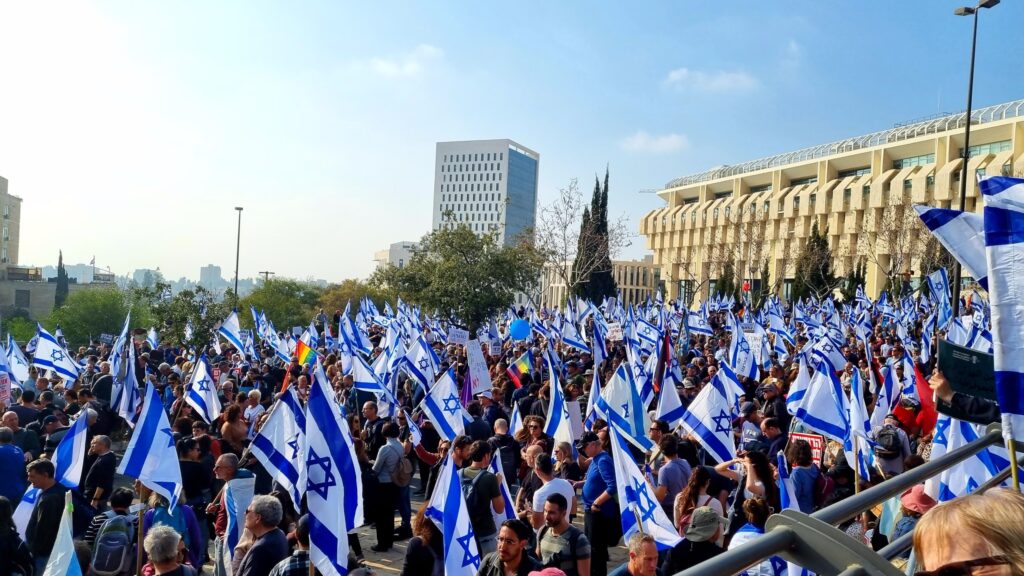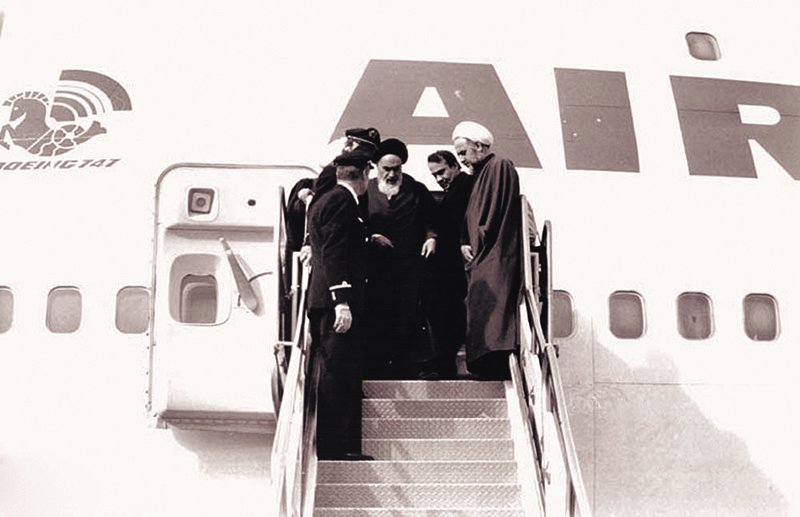A Constitutional State Among Middle Eastern dictatorships
Israel’s Prime Minister Benjamin Netanyahu testified for the first time late last year in the corruption trial that has been ongoing for several years in Israel. The trial began in May 2020 and the prosecution’s witnesses started testifying on April 5, 2021. The trial is expected to continue for many more months.

Netanyahu, 75, is the first sitting Israeli prime minister to be indicted for criminal charges. In March 1977, it was revealed that Prime Minister Yitzhak Rabin’s wife, Leah, had a bank account in the U.S. at a time when, with few exceptions, it was illegal for Israeli citizens to hold foreign bank accounts. Rabin resigned after the revelation, and Shimon Peres succeeded him.
He returned as Prime Minister in 1992 but was assassinated at a political rally in Tel Aviv in November 1995.
In 2008, when Prime Minister Ehud Olmert was investigated by police for bribery, he announced his resignation as leader of the ruling Kadima party on July 30 of that year. In his resignation speech, he stated he was “proud to be a citizen of a country where a prime minister can be investigated like any other citizen.” In May 2014, Olmert was sentenced to prison and released in July 2017.
Netanyahu is on trial while Israel is at war in Gaza and facing new regional threats, as former al-Qaeda terrorists backed by Turkey have taken leadership in Syria.
The trial is taking place at a time when antisemitism is rising globally, and Muslim despots are rallying repressive regimes like Iran, Russia, and North Korea in the UN General Assembly to condemn Israel more times than all other countries in the world combined.
Enormous pressure
On top of that, the International Criminal Court (ICC) has issued an arrest warrant for Netanyahu for his country’s war against the terror group Hamas, while former Syrian President Bashar al-Assad and former Sudanese President Omar al-Bashir evade ICC action and move freely within the Muslim world after their genocides and wars that killed millions and displaced tens of millions.
Despite these enormous pressures on the state of Israel, the country’s legal system continues with the trial of its prime minister. The case concerns corruption allegations during Netanyahu’s fourth and fifth terms as prime minister. Israeli police began their investigations in December 2016 and recommended indictment in November 2019.
In court, Netanyahu accused the Israeli media of being left-leaning and claimed that journalists had pursued him for years because his policies didn’t align with their push for a Palestinian state.
In his defense, he portrayed himself as a reliable defender of Israel’s security, resisting international pressure and criticism from a hostile domestic media, according to Israeli news outlets.
Three Charges
The three charges Netanyahu faces involve:
Expensive gifts worth more than a million shekels from, among others, Hollywood media mogul Arnon Milchan over two decades.
Conversations between Netanyahu and the owner of Yedioth Ahronoth, one of Israel’s largest newspapers, about potential legislation that could harm Israel Hayom, Yedioth’s main competitor.
The relationship between telecom company Bezeq and the Communications Ministry when it was headed by Netanyahu.
According to the indictment, Arnon Mozes, owner of Yedioth Ahronoth, offered more favorable coverage of Netanyahu and his family in the newspaper, and negative coverage of political opponents in exchange for legislation that would restrict Israel Hayom and provide economic benefits to Mozes’ company.
In the Bezeq case, Netanyahu is accused of promising regulatory changes that would benefit owner Shaul Elovitch’s business interests in exchange for favorable coverage of Netanyahu and his family on Elovitch’s news website, Walla!
Massive Protests
Netanyahu denies any wrongdoing and pleads not guilty.
“If I’d wanted good media coverage, I would have just needed to signal support for a two-state solution… and had I moved two steps to the left, I would have been praised,” he said in court.
The indictment against the Israeli prime minister quickly sparked protests and calls for his resignation. Demonstrations escalated rapidly in early 2023 due to a judicial reform aimed at giving politicians the power to appoint Supreme Court justices and limit the court’s ability to block decisions made by elected Knesset members — a reform intended to align Israel with many OECD countries and a majority of the top-ranking democracies according to The Economist’s Democracy Index.
The political strife in Israel let its enemies see their chance. Hezbollah leader Hassan Nasrallah said in early March 2023, referring to the internal disputes, that the events in Israel signaled the country’s impending demise. Nasrallah was killed by an Israeli strike on Hezbollah’s headquarters on September 27, 2024.
Democracy in Action
The Judiciary and Foreign Affairs Committees in the U.S. House of Representatives have launched an investigation into six Israeli and American organizations that received funds from the Biden administration, suspecting that the money was used to “undermine Israeli PM Benjamin Netanyahu’s position” during the 2023 protests against the judicial reform.
The huge demonstrations were protected by Israel’s police, and voters had already made their voices heard in five democratic elections over seven years. That’s more free and democratic elections (in which about two million Arabs enjoy voting rights) than have taken place in the entire Middle East during the same period.
After these five elections, Netanyahu once again became prime minister in November 2022.
Israel’s sluggishness and lack of vigilance surrounding Hamas’s terror attack on October 7, 2023, have further fueled criticism of the current prime minister. His dismissal of Ronen Bar, head of at the intelligence agency Shin Bet, has intensified this criticism.
Israel’s Supreme Court blocked Netanyahu’s attempt to fire the intelligence chief, and critics argued that the real reason for the dismissal was a Shin Bet investigation into possible ties between Netanyahu’s associates and Qatar, which has funded the terror group Hamas.
Hungary and the U.S.
Netanyahu was granted a break from his trial in Israel to travel to Budapest in early April, prompting the ICC to demand his extradition. Hungary responded by withdrawing from the ICC when Israel’s prime minister landed.
At a joint press conference, President Orbán claimed that the ICC had become a “political court” and added that its decision to issue an arrest warrant for the Israeli leader “clearly showed” this, according to the BBC.
Subsequent meetings in the U.S. with President Donald Trump about Gaza, Iran’s nuclear capabilities, and U.S. tariffs allowed Netanyahu freedom from another day in court.
It may take many months before the judges reach a verdict. According to Israeli law, a prime minister is not required to resign unless convicted and can retain office throughout the appeals process if a conviction is appealed.


